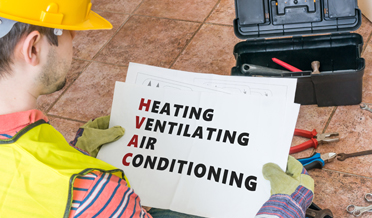HVAC Replacement Tips for Homeowners
After living in your home for several years, depending upon your HVAC system becomes second nature. You have experienced cooling season after heating season with little thought about an end-of-serviceable life. But according to the professionals, the time has come for an HVAC Replacement and it is a little disconcerting. Facing a purchasing decision without adequate information can lead to fear and uncertainty.
Arming yourself with information regarding HVAC systems will help you to prepare your budget and make decisions regarding size, brand, and type of system. Here are key details to help organize the purchase decision that lies ahead.
- A new HVAC system using current technology will last approximately 20 years: with consistent and regular preventative maintenance it could last longer. The cost will be significant, but the system will provide comfort, safety, and convenience for years to come. Divide the total cost by 20 (years) to realize the value of a new HVAC system.
- An HVAC system is sold by size; a technician will gather information about your home and complete a “load calculation” to determine the proper size for components. Expect questions about square footage, number of doors and windows, insulation quality, and building construction. The heating components are sized by British Thermal Units or BTUs. Air conditioning components are sized by tonnage. The technician can explain what those numbers mean if you ask.
- HVAC components receive energy-efficiency ratings. Air conditioners receive a SEER, or Seasonal Energy Efficiency Rating; they range between 13 and 21 SEER—a higher number indicates better efficiency. Furnaces are rated with a percentage. Electric forced-air furnaces are considered 100% efficient, while gas-powered furnaces will be 80-97% efficient.
- Keep up during temperature extremes, both hot and cold extremes. The heating and cooling cycles will run longer than they should, increase the energy needed, and cause premature wear on vital parts. A system too large will achieve the desired temperature too fast, causing frequent heating and cooling cycles. This also leads to inefficiency and premature wear.
- With each generation of technology, HVAC engineers make incredible advances. Your new system will be much more efficient that your existing system. There will be better safeguards, a quieter, variable speed blower, and better thermostat options
- Another option is available today with your new purchase. Most likely, your home was designed with a central ducted HVAC system. It serviced your home as anticipated and you probably had few complaints. However, another option is available for homes with difficult-to-condition spaces, such as multi-storied residences or structures that require long duct lengths. Mini-split, ductless HVAC systems lend an option that can heat or cool hard-to-reach spaces and create zones with individual thermostats. If your home has hot or cold spaces, be sure and ask about a mini split option.
- If your new HVAC system uses the existing ductwork, make sure to have it cleaned and inspected before installing the new system. A layer of dust and debris accumulated inside the ducts over time; it’s best to remove it before it can re-enter your indoor air space. Have the ducts inspected for loose joints and gaps that allow conditioned air to escape from the network of ducts?
- After the system is installed, the technician will provide the manufacturer’s guidelines for preventative maintenance, recommendations for cleaning, and air filter replacement. Listen carefully and prepare to follow these guidelines; they are the key to keeping your new HVAC system in good working order for the maximum span of time.
Have Questions about HVAC Replacement?
Let us help with your HVAC Replacement. Call Doctor Cool & Professor Heat today at 281-338-8751 or email Doctor Cool and let our professional Residential HVAC Replacement technicians assist with all of your HVAC questions.
